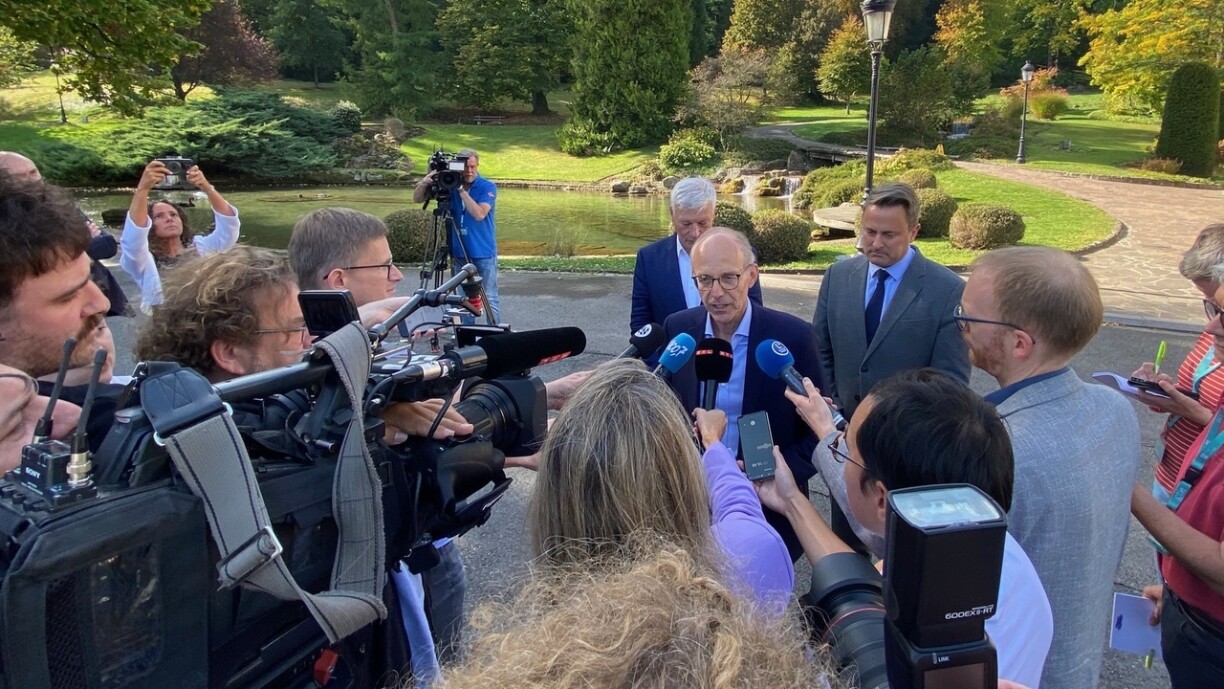
Frieden expressed his satisfaction with the progress, surpassing initial expectations. He expressed confidence in the collaborative process that would unfold in the coming weeks.
Regarding the timeline for these negotiations, Frieden refrained from specifying a completion date but emphasised the urgency of forming a functioning government in these challenging times. “You won’t have to wait till the cows come home for a new government,” Frieden said.
On Wednesday morning it was decided to create ten to twelve task forces.
The most important of these are said to be:
In the days ahead, input from social partners and representatives from civil society, including Caritas and the Red Cross, the Sustainability Council, and the Ecological Movement, will be sought.
On Thursday morning, however, the first topic of discussion will be public finances. The different ministries will be distributed at the end of the negotiations.
Xavier Bettel underscored the swift progress, noting that discussions on various topics would continue in the days ahead. He stressed the significance of prioritising issues such as poverty and climate change. Bettel, who has served as prime minister for the past decade, found it “opportune” to invite the Ecological Movement, the Sustainability Council, Caritas, and the Red Cross, given the current circumstances. He expressed optimism about the constructive discussions during the morning session, stressing the importance of listening to one another. Bettel was confident in the prospects for reaching an agreement and commended the promising start to the negotiations.
Claude Wiseler highlighted the importance of an organised approach to the talks, particularly one proposed by Luc Frieden, focusing on overarching, cross-ministerial issues that concern the public instead of tackling each ministry individually. Wiseler stressed the need for precision in the coalition programme, highlighting its importance for effective governance over the next five years. He applauded the willingness on both sides to engage in discussions as equals, find solutions to challenges, and reach a positive conclusion to the negotiations. Wiseler concluded by stating that he looks forward to the productive work in the days ahead.
Led by party co-chair Claude Wiseler, the Christian Social People’s Party (CSV) delegation comprises co-chair Elisabeth Margue, Gilles Roth, Stéphanie Weydert, Martine Hansen, Christophe Hansen, Serge Wilmes, Max Hengel, Léon Gloden, Alex Donnersbach, and Georges Mischo, MP-Mayor of Esch-sur-Alzette.
The Democratic Party (DP) delegation, led by incumbent Prime Minister Xavier Bettel, includes his ministers Yuriko Backes, Max Hahn, Lex Delles, and Claude Meisch. Other members of the delegation are Fernand Etgen, President of the Chamber of Deputies, Myriam Feyder, municipal councillor for Hesperange who did not take part in the elections, Carole Hartmann, MP-Mayor of Echternach, Luc Emering, Lydie Polfer, and Corinne Cahen.